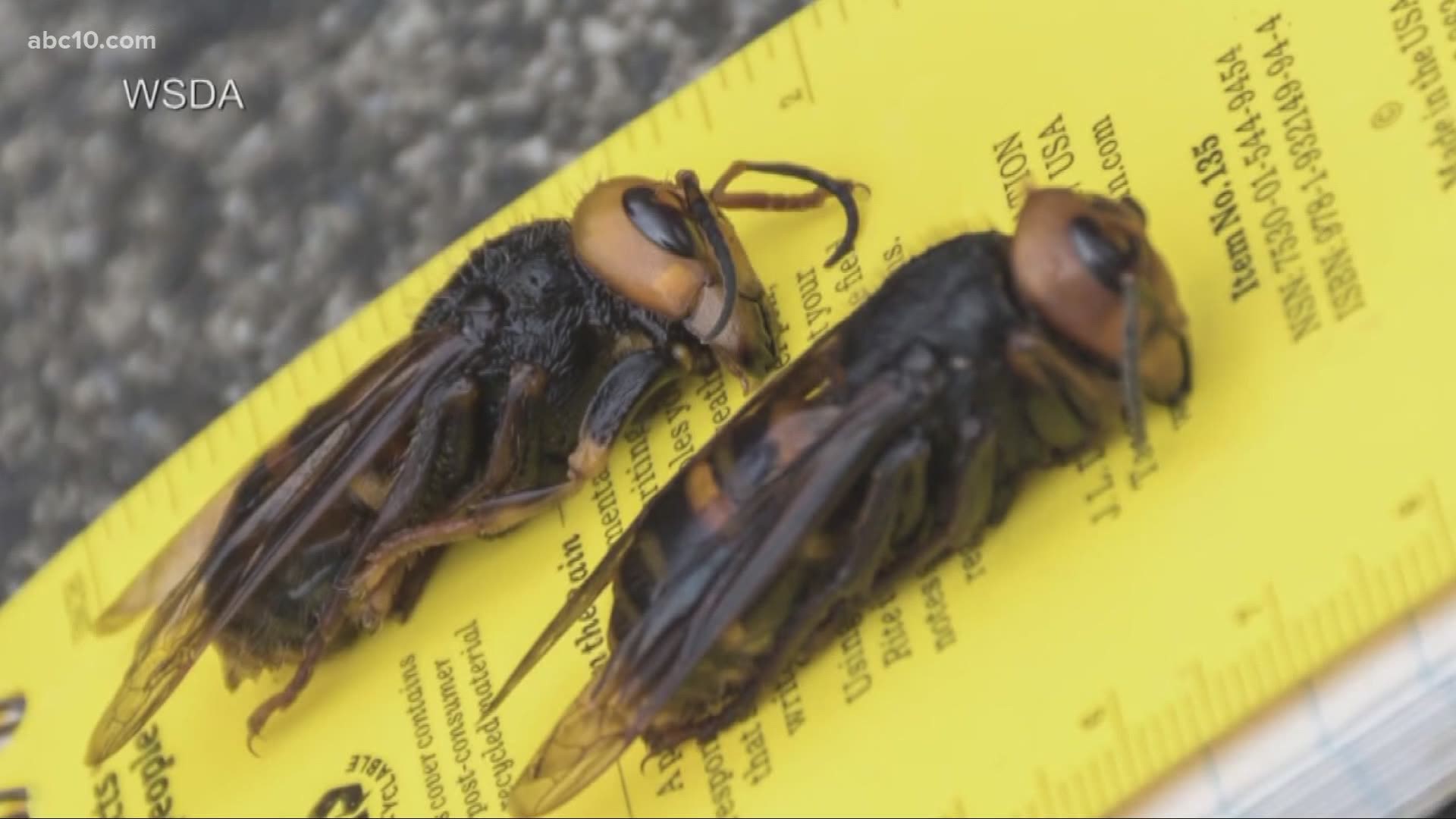STOCKTON, Calif. — It looks menacing, is two inches long, and its sting can be deadly to humans. More importantly, it enjoys feasting on honey bees, a species that helps California crops but has seen a sharp decline in recent years.
Meet the Giant Hornet, or, as the internet has recently learned, the "Murder Hornet."
Dr. Lynn Kimsey, entomologist at UC Davis, said the insect got it's frightening name because they kill honey bees "by decapitating them." They also attack in groups, exposing victims to toxic venom that is as that can be fatal in abundance.
Dr. Kimsey says it first appeared in Washington state near Vancouver last September, most likely arriving on a shipping container from Asia. None have been discovered in California.
Still, there could be cause for concern, because honeybees are essential to pollinating the fruits and vegetables that are key to California's economy.
"If it did come over to the point where we couldn't control it, then yes it could do a lot of damage to agricultural in general," said Kimsey
On farmland near French Camp, a bee keeper named Peter, who preferred not give his last name, has close to 250 hives. He is familiar with the giant insect, but isn't worried about attacks on hives for now.
"I don't think they're going to be adapting that quickly here in the United States," Peter said.
Still, the San Joaquin Farm Bureau Federation is keeping a close eye on the giant insect's next move.
"If this is something that gets established, it can wipe out hives," says Farm Bureau Federation Executive Director Bruce Blodgett. "Just a couple of them can wipe out hives in no time at all."
So, what are the chances the 'Murder Hornet' could establish colonies in the Sacramento and San Joaquin Valley?
Very little, "because we do a lot of spraying," Kimsey said. "The insect population is very small by and large. There just wouldn't be enough food for them."
She says nesting in the ground would also be difficult because the ground is tilled.
As for trees? Their size makes them easy to be discovered and then taken out.
Bottom line, the "Murder Hornet" is more sting than bite for now.
Follow the conversation on Facebook with Kurt Rivera.
READ MORE ON ABC10:

